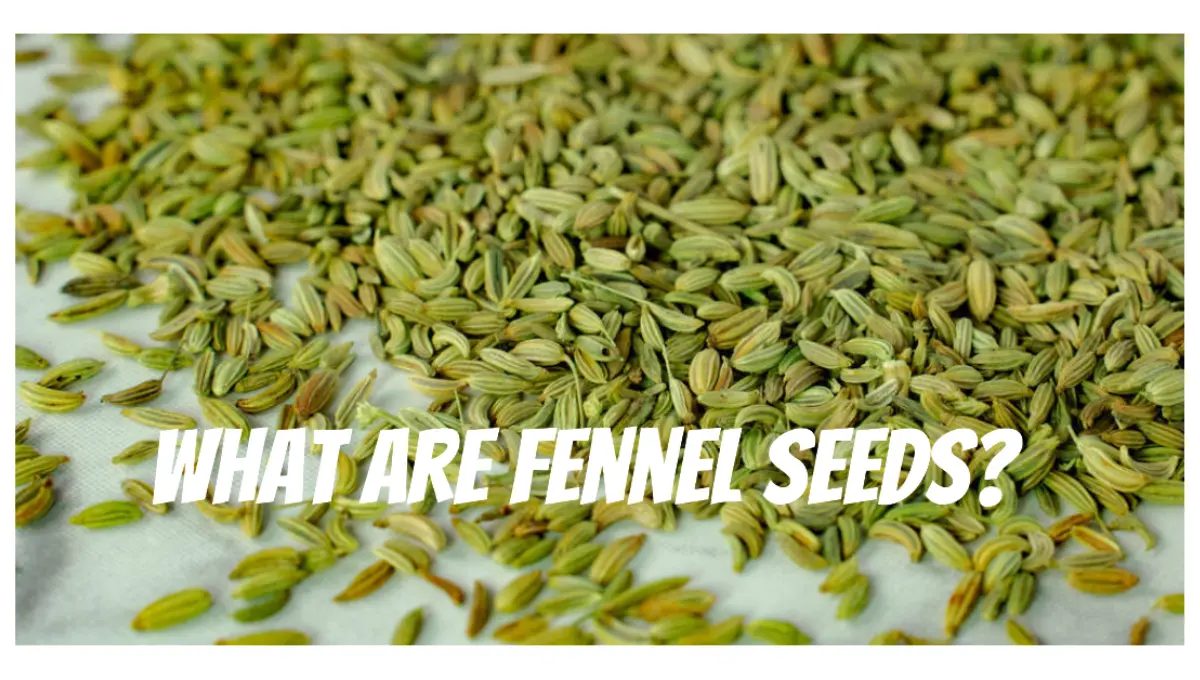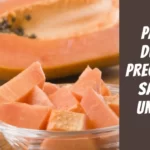
Throughout pregnancy, a woman’s body undergoes a series of transformations that may lead to some discomfort. To alleviate issues like bloating and indigestion, it can be beneficial to explore natural remedies and home treatments. Fennel seeds, commonly found in kitchens, are a well-known kitchen ingredient that can provide relief to pregnant women. However, there might be some hesitation among expectant mothers when it comes to consuming fennel seeds during pregnancy.
This article on PregnancyBoss aims to delve into the advantages, potential risks, and effects of fennel seeds during pregnancy, equipping pregnant women with the information needed to make informed choices.
Related: Neuropro Vs Neuropro Care: The Ultimate Showdown
What are Fennel Seeds?

Fennel, a herb originally discovered in Europe, yields seeds known as fennel seeds, possessing a distinct flavor and aroma. These seeds start out green or brown when fresh and eventually assume a dull gray hue. The plant boasts fluffy leaves and belongs to the parsley family. Fennel, often found in kitchens worldwide, is renowned for its therapeutic properties. In India, it is commonly referred to as “saunf” and is used in cooking, frequently employed as a mouth freshener. Saunf is believed to alleviate dental discomfort, gum issues, and offers various health benefits, such as aiding digestion.
Related: Can You Eat Chicken Salad While Pregnant?
Nutritional Content of Fennel Seeds
According to the USDA, here’s the nutritional content for 1 cup (87g) of sliced fennel:
- Calories: 27
- Fat: 0.2g
- Sodium: 45mg
- Carbohydrates: 6.3g
- Fiber: 2.7g
- Sugars: 3.4g
- Protein: 1.1g
Related: Can You Safely Eat Takis While Pregnant?
Is it Safe to Consume Saunf During Pregnancy?
Yes, it is generally safe to consume fennel seeds during pregnancy in moderation. Small amounts of fennel seeds can assist in alleviating common pregnancy discomforts like nausea, bloating, and dental problems. Moreover, fennel seeds are known to stimulate bile flow, potentially easing cramps.
However, it’s crucial for pregnant women to avoid excessive consumption of fennel seeds, as this may lead to vaginal bleeding, which could result in a miscarriage. Additionally, fennel seeds can have a mild blood-thinning effect and may contribute to dry and sensitive skin, making it important for those with bleeding disorders or sensitive skin to consume them cautiously.
During pregnancy, a reasonable approach is to sprinkle a small quantity, approximately a teaspoon, of these seeds into food. For personalized guidance, pregnant women can consult their healthcare provider to determine the appropriate amount of saunf to consume. According to USDA guidelines, adults are generally advised to limit their fennel seed intake to around 2 to 3 grams or one tablespoon per day during pregnancy.
Related: Jalebi During Pregnancy? A Yummy Question!
What are the Benefits of Saunf During Pregnancy?
Here are some of the common advantages associated with consuming fennel seeds during pregnancy:
- Aids Digestion: Fennel seeds contain anethole, which can relax digestive muscles, promote healthy digestion, and alleviate issues like indigestion, gas, and bloating during pregnancy.
- Regulates Blood Sugar: Consumption of fennel seeds can help regulate blood sugar levels by reducing glucose absorption in the intestines, benefiting women at risk of gestational diabetes.
- Prevents Constipation: Fennel seeds are rich in dietary fiber, making them effective in preventing and relieving constipation during pregnancy.
- Rich in Antioxidants: Fennel seeds are loaded with antioxidants like flavonoids, phenolic compounds, and volatile oils, which can combat free radicals and minimize oxidative damage.
- Combats Morning Sickness: Fennel seeds can boost appetite and alleviate morning sickness by reducing gas and heartburn, common early pregnancy symptoms.
Related: Tiramisu During Pregnancy: Is It Safe to Indulge?
What are the Side Effects of Fennel Seeds During Pregnancy?
While the benefits of consuming saunf are evident, it’s essential to be aware of potential side effects:
- Blood-Thinning Properties: Fennel seeds can affect blood clotting, making them a concern for individuals with bleeding issues or a propensity for wounds and bleeding.
- Increased Dryness and Sensitivity: Fennel seeds may lead to skin dryness and heightened sensitivity, which may not be suitable for pregnant women with sensitive skin.
- Possibility of Triggering Contractions: Fennel has antispasmodic and anti-inflammatory qualities that can stimulate the uterus and potentially induce contractions. However, moderate consumption during pregnancy is unlikely to harm the fetus or lead to preterm contractions.
What are the Risks of Fennel Seeds During Pregnancy?
Consuming fennel seeds during pregnancy carries some potential risks, including their effect on blood clotting, potential to dry out and sensitize the skin, and the stimulation of menstrual flow. This can elevate the risk of miscarriage in early pregnancy. Pregnant women with bleeding disorders or sensitive skin should exercise caution when considering fennel seeds. However, when consumed in moderation, fennel seeds are generally safe and have no known adverse effects on either the mother or the unborn child.
How to Incorporate Fennel Seeds into a Pregnancy Diet?
Pregnant women can include fennel seeds in their diet after consulting with a healthcare professional. Fennel seeds offer a pleasant scent and a subtle sweetness, enhancing the flavor of dishes when added during cooking. They can also be used in tea or consumed raw after meals. Before introducing saunf to your pregnancy diet, it is essential to seek guidance from a doctor or nutritionist. Fennel powder can be added to yogurt, buttermilk, or used in tea. Additionally, fennel is a key ingredient in various Indian dishes, such as dry okra (bhindi ki sabzi), potato curry (Aaloo ki sabzi), dal, and more.
How much Fennel Seeds can a Pregnant Woman Consume?
Fennel seeds can be consumed during pregnancy, but only in moderation. Pregnant women should avoid consuming fennel seeds in excess amounts as they may cause vaginal bleeding that could lead to miscarriage. Fennel seeds are only recommended in very small amounts because they are a natural emmenagogue, which means that they help trigger or increase menstrual flow. Therefore, it is not recommended to eat fennel seeds during the third trimester of pregnancy. Pregnant women can add a small amount of these seeds (for instance, a teaspoon or so) to their food, but it is best to consult a doctor to find out an acceptable amount, considering their health requirements.
There is not enough research indicating that consumption of fennel seeds could be safe during pregnancy. However, small amounts of these seeds are not known to have any harmful effect on the mother or the baby, probably because these amounts are not enough to bring about the characteristic hormonal changes induced by fennel seeds
Can I Eat Fennel Seeds In First Trimester?
It is not recommended to eat fennel seeds during the first trimester of pregnancy. Fennel seeds may stimulate uterine contractions, which could result in miscarriage or preterm birth. However, consuming fennel seeds in moderation during the second and third trimesters can be beneficial for improving digestion, reducing bloating, and alleviating common pregnancy symptoms like gas and indigestion.
Can Fennel Seeds Help with Lactation During Pregnancy?
Fennel seeds are believed to have lactogenic properties that can help increase milk production in breastfeeding mothers. However, there is no scientific evidence to support this claim, and it is considered anecdotal. It is not recommended to consume fennel essential oil during pregnancy or while breastfeeding, as it is not safe for infants and small children.
Can Fennel Seeds Cause Premature Contractions During Pregnancy?
Fennel seeds can cause premature contractions during pregnancy. Fennel seeds contain properties that stimulate the uterus and can cause early contractions. Therefore, pregnant women should avoid consuming fennel seeds in excess amounts as they may result in miscarriage or preterm birth.
Does Eating Fennel Seeds Cause Miscarriage?
Excessive consumption of fennel seeds can potentially lead to a miscarriage. This is because fennel seeds have natural emmenagogue properties that can stimulate the menstrual cycle and result in vaginal bleeding, increasing the risk of miscarriage. However, when consumed in moderation during pregnancy, fennel seeds are generally safe and offer several health benefits, including aiding digestion, reducing inflammation, and promoting lactation.
Pregnant women should consult a healthcare provider for guidance on the appropriate amount to consume during pregnancy, especially if they have a bleeding disorder or sensitive skin.
What are Some Traditional Remedies that Use Fennel Seeds During Pregnancy?
Fennel seeds have been used as a traditional remedy during pregnancy for various ailments. Here are some traditional remedies that use fennel seeds during pregnancy:
- Nausea and morning sickness: Fennel seeds are used to alleviate nausea and morning sickness, which are common during pregnancy. They contain anesthetic components that help reduce the queasy feeling in the tummy.
- Lactation: Fennel seeds are a traditional remedy for promoting lactation in nursing mothers. They contain phytoestrogens, which can help stimulate the production of milk.
- Digestion: Fennel seeds are naturally carminative, which means that they have anti-flatulence properties. They also help to stimulate bile flow, which is important for digestion. Fennel seeds are a rich source of fibers, which help to prevent constipation.
- Mouth freshener: Fennel seeds can be used as a mouth freshener during pregnancy. They have a sweet and aromatic flavor that can help freshen the breath.
- Fair baby: Some ayurvedic traditions suggest that consuming fennel seeds during pregnancy can result in a fair baby. However, this claim is not supported by scientific evidence.
How to Pick the Best Quality and Aromatic Fennel Seeds?
Here are some tips on how to pick the best quality and aromatic fennel seeds:
- Look for seeds that have a strong, sweet, and aromatic fragrance. High-quality fennel seeds should have a distinct aroma and should not have a musty smell.
- Choose fennel seeds that are whole and unbroken. Broken seeds may have lost some of their essential oils, which contribute to their flavor and aroma.
- Check the color of the seeds. High-quality fennel seeds are usually pale green in color.
- Buy fennel seeds from a reputable source. This ensures that you are getting fresh and high-quality seeds.
- Consider buying organic fennel seeds. Organic seeds are grown without the use of pesticides and other harmful chemicals, which can affect their quality and flavor.
- Store fennel seeds in an airtight container in a cool, dry place away from direct sunlight. This helps to preserve their flavor and aroma.
Closing Thoughts
In conclusion, it is generally safe to incorporate fennel seeds or saunf into your pregnancy diet, provided you do so in moderation. However, it is advisable to consult a healthcare professional before introducing any new food into your pregnancy diet. Overall, when consumed in reasonable amounts as part of a balanced diet, fennel seeds can contribute positively to a healthy pregnancy.
Related: Cueritos While Pregnant: A Must-Read for Mexican Food Lovers!
Frequently Asked Questions (FAQs)
Is it safe to eat fennel seeds during pregnancy?
Yes, it is safe to eat fennel seeds during pregnancy. However, it is recommended to consume them in small amounts.
What are the benefits of consuming fennel seeds during pregnancy?
Fennel seeds are rich in antioxidants, fiber, vitamins, and minerals. They can help with digestion, inflammation, blood sugar regulation, and can even promote lactation in nursing mothers.
Are there any side effects of consuming fennel seeds during pregnancy?
Fennel seeds are a natural emmenagogue, which means they can help trigger or increase menstrual flow. Therefore, consuming them in large amounts can be harmful during pregnancy. It is recommended to consume them in small amounts.
How much fennel seeds can be consumed during pregnancy?
It is recommended to consume fennel seeds in small amounts during pregnancy. For instance, a teaspoon or so can be added to food. However, it is best to consult a doctor to understand how much should be consumed based on individual health requirements and conditions.
Can fennel seeds negatively affect fetal development?
Eating small amounts of fennel seeds and/or eating fennel infrequently is safe during pregnancy because these amounts will not provide enough of the compounds to negatively affect fetal development.
Can fennel seeds be used as a home remedy for acid reflux during pregnancy?
Yes, fennel seeds can be used as a home remedy for acid reflux during pregnancy. Drinking fennel tea can provide instant relief from heartburn. However, it is recommended to use no more than one teaspoon of fennel seeds during pregnancy.












